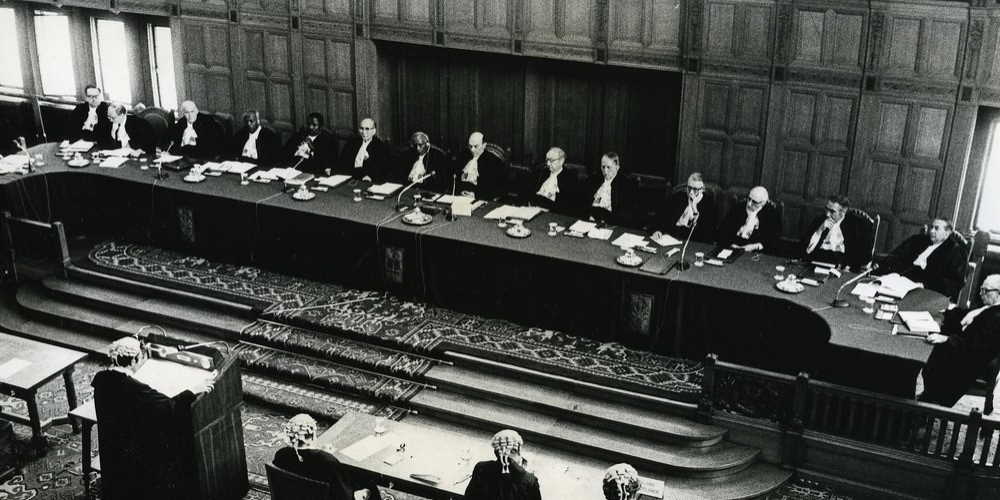A knowledgeable and highly accomplished international lawyer gets appointed to the International Court of Justice (ICJ). This hardly qualifies as news. When Georg Nolte, who is no less a prominent public figure in the German landscape, was appointed to the highest court of all, only two German newspapers even reported on it (here and here). Yet, when news of Hilary Charlesworth’s election by the absolute majority of the UN General Assembly broke on November 5th, international law twitter quite frankly went mad. Following established practice, Hilary Charlesworth, an Australian national, takes the seat of fellow Australian late judge Crawford. Elsewhere, Fionnuala Ní Aoláin offers a pointed analysis of why the gender dynamics at play in the election of Charlesworth, make this particular appointment so noteworthy. I will thus not dwell on this issue. Not the least, because professor Charlesworth told us more than 22 years ago that she wishes to one day be perceived not only as a feminist, but a fully-fledged international lawyer. Rather, I use this piece to draw attention to the other reason that professor Charlesworth’s election to the ICJ’s judicial bench is such a remarkable moment in the practice of international law. With her, an international lawyer with an extraordinary sensitivity for the contextual factors that shape international law has been appointed to the international judicial bench. She has famously exposed how the absence of women in the practice of international law has left it glaringly gender-biased. But gender is by far not the only contextual factor, that professor Charlesworth has paid attention to. Another one, is the role of crisis in shaping international law.
Our times are defined by crisis. As they come and go without pause, the crisis mode has become the constant status quo. This observation is hardly news when it is articulated about global policy. Yet, professor Charlesworth attests, that the discipline of international law too has fallen victim to the crisis mode, noting that this comes with its problems. When operating in a crisis mode, international lawyers take the elements of the crisis as it is presented by others at face value. It stops them from questioning the framing of the crisis itself. Their efforts become so focussed on solving the problems caused by a crisis that they lose sight of reflecting on its root causes, or, to put it more simply, they lose sight of the bigger picture. This also means that, rather than to build on past experiences and lessons learned, international legal analysis confronts every crisis as if it was the first. The crisis mode is a seductive one. It is associated with ‘action’, ‘problem-solving’, ‘effort’, ‘decisiveness’ and many other attributes that we consider to be desirable. Charlesworth reminds us, that this mode is not only inapt to address the fundamental structural problems of our time, but that it serves ourselves more so than it serves others. Turning our attention away from crisis and toward problems of every-day life such as poverty and inequality requires us to do something that the crisis-mode excuses us from doing, which is to consider the perspectives of every-day people. Elsewhere she observed:
“International law offers one discourse for the expression of concerns in the international community. This discourse is contested and discordant, but it provides a basis for the negotiation of just outcomes. The broader and the deeper the participation in the discourse, the more just the outcome will be.”
This is significant because the ICJ judicial bench is perhaps the highest office to occupy in a highly elitist profession. Once in this position, one may easily lose sight of the stakes of international law outside the centres of global power. It is comforting to know that judge Charlesworth enters this office with a self-awareness of the position of privilege she occupies in the global social order and a consciousness for the benefits it will bring to the discipline of international law and its purpose of delivering justice to create the space to hear the voices of the less privileged ‘other’.
As a discipline, international law is obsessed with its tools and techniques. Justifiably so. It is a legal system, which is not backed up by state power, but which draws much of its authority from its acceptance. This is why many international lawyers feel a sense of responsibility to care for international law. Nowhere else must this responsibility be felt as acutely as it is on the judicial bench of the International Court of Justice. The ICJ is, among other things, responsible for resolving questions of interpretation of international law. While any speculations on how judge Charlesworth will approach this weighty responsibility are uncalled for, it is reassuring to know that she is well aware that the identities of those who have the power to interpret international law have a bearing on how it is shaped. Of course, judge Charlesworth too cannot escape this logic and will inevitably be guided by her own identities, such as gender or class, but having an individual who is ready to acknowledge and accept this fact has been charged with the responsibility to take care of international law’s tools and techniques – that is in itself indeed a good reason to take note.
Hilary Charlesworth’s judicial appointment is a celebratory moment for the practice of international law and the future of our discipline. Not because it is a small step towards gender parity in international judicial institutions (an objective we are currently embarrassingly far removed from). No, the reasons are far more subtle. In a context in which the calls to recalibrate international law to not only address crisis, but to contribute towards the eradication of their root causes are often labelled as idealism, which is irreconcilable with the pragmatism required of international law practice, Hilary Charlesworth appointment signifies that, at the end of the day, idealism and pragmatism may not be so far removed from one another.
Note: This post will also appear on Völkerrechtsblog.



